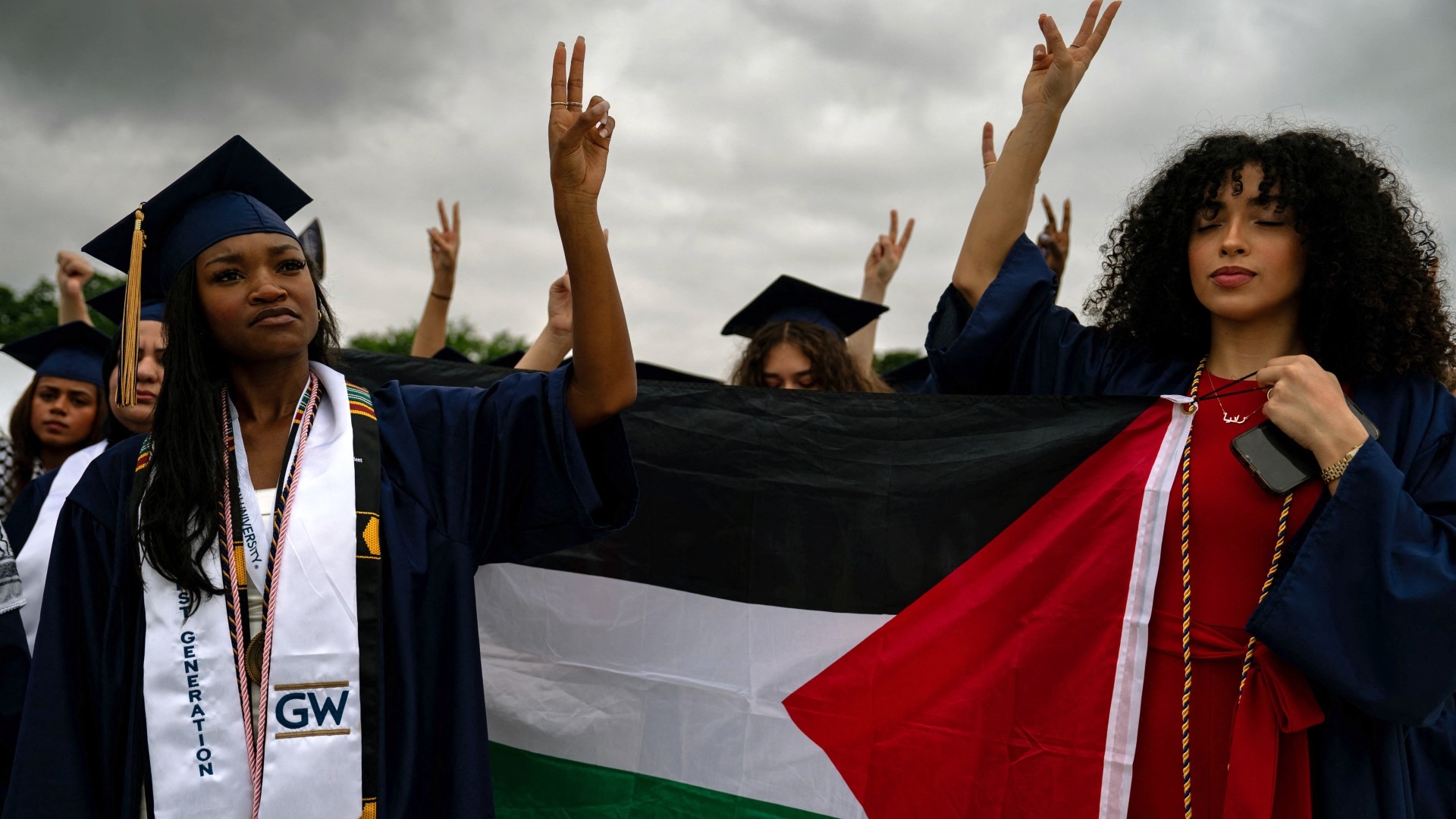US: Pro-Palestine protestors 'influenced' by Iran, intelligence chief claims

US director of national intelligence (DNI) Avril Haines said in a statement on Tuesday that the Iranian government is stoking Palestine solidarity protests across the United States.
"In recent weeks, Iranian government actors have sought to opportunistically take advantage of ongoing protests regarding the war in Gaza," Haines wrote in a statement published on the DNI's website.
“We have observed actors tied to Iran’s government posing as activists online, seeking to encourage protests, and even providing financial support to protesters," she continued.
The statement refers to Iran's "increasingly aggressive" foreign influence efforts which are "undermining confidence in democratic institutions, as we have seen them do in the past, including in prior election cycles".
Evidence to the claims made is, however, lacking. An investigation by NBC from March this year found that public records show "no clear evidence financially linking Hamas or any foreign governments to the American protests".
New MEE newsletter: Jerusalem Dispatch
Sign up to get the latest insights and analysis on Israel-Palestine, alongside Turkey Unpacked and other MEE newsletters
"The movement overall appears grassroots, with localized efforts that coordinate primarily through social media using apps such as Telegram, X, WhatsApp and Instagram," NBC reported.
As the director of national intelligence, Haines works closely with the president, serving as a principal advisor. She also oversees and directs the implementation of the national intelligence programme budget.
In the statement, which is framed as part of a series of updates around election interference threats from foreign countries, Haines urged Americans to "remain vigilant as they engage online with accounts and actors they do not personally know".
The pro-Palestinian protest movement in the US spans vast swathes of the country, stretching from New York City on the east coast to California in the west. Student encampments popped up in over 90 universities at the height of the movement while school was in session.
Unprecedented protests
The wave of Palestine solidarity protests that have swept across the United States and the world in the last months has been unprecedented.
Over 94 percent of the more than 1,360 student demonstrations held in the US between 7 October 2023 and 3 May 2024 showed support for Palestine, data by Armed Conflict Location and Event Data (ACLED) has shown.
In recent weeks, various college graduations, usually held in May and June, have dedicated their speeches and commencement ceremonies to Gaza.
Protests have been subject to heavy crackdowns by state and university administrators, often powered by allegations of antisemitism or potential for violence.
The starkest example remains Columbia University, where New York police raided the protest camp on 30 April and arrested around 300 protesters. Eyewitnesses told Middle East Eye that police had assaulted a number of demonstrators and blocked them from receiving medical assistance.
Prosecutors in the city of New York recently dropped all charges against most of the students and activists who were arrested by police for occupying a Columbia University building in protest against the school's investments in companies profiting from Israel's war on Gaza.
Thirty-one out of the 46 people who were arrested in April had their charges dismissed. The Manhattan District Attorney's office said they would drop the charges against the 31 individuals, citing "prosecutorial discretion and lack of evidence".
Prosecutors said the remaining 14 protesters would also have their charges dropped, on the condition that they not get arrested over the next six months. However, the defendants rejected this offer, and both sides are due back in court on 25 July.
Various chapters and student groups such as Jewish Voice for Peace and Students for Justice in Palestine have faced repression or have been banned by administrators at multiple US colleges.
The overwhelming majority of student demonstrations - 97 percent - have remained peaceful, according to data by ACLED. Furthermore, Jewish student protestors and faculty from various universities have described an atmosphere of camaraderie, faith, and community building at the protest camps.
Middle East Eye delivers independent and unrivalled coverage and analysis of the Middle East, North Africa and beyond. To learn more about republishing this content and the associated fees, please fill out this form. More about MEE can be found here.

